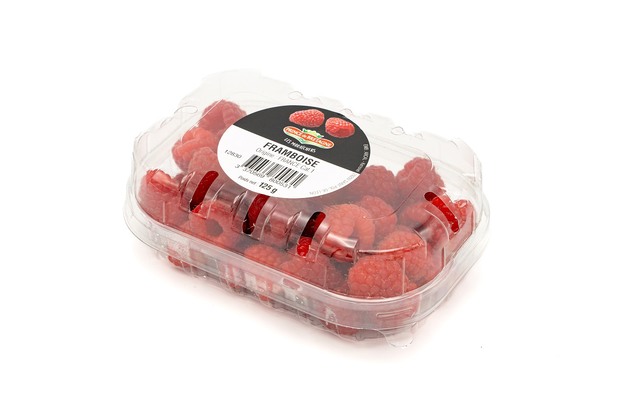The demand for small fruits continues to grow in France, but the domestic supply is too low to meet this demand (most of the red fruits consumed in France are imported). Prince de Bretagne producers who already grow strawberries have decided to add raspberries and blueberries to their catalog. Since 2020, this work has been carried out in conjunction with the Caté experimental station, based in Saint-Pol-de-Léon (Finistère).
"A card to play for producers"
Red fruits are segmentation products that are increasingly appealing to consumers. "A dozen Prince de Bretagne producers have decided to test their production locally. In the long run, the sector should develop to meet the growing demand for red fruit in France."
The structuring of a red fruit section within Cerafel-Prince de Bretagne is still in its infancy, but it is helping to "offset the national supply, which falls far short of the demand for red fruit, as the majority of products on the shelves are imported (Belgium, Peru, Portugal)." Prince de Bretagne growers, therefore, decided to seize this market opportunity and expand their range to meet the growing French demand.

"We developed these products at the request of a client specializing in red fruit, with whom Prince de Bretagne was already working on strawberries. He was buying French blueberries and raspberries but wanted to source them from Brittany. I presented the project to our producers, and we called in an outside technician because these are different and highly technical crops, with facilities that not all our growers have, including irrigation, for example. After discussions with a dozen growers, we launched the trials at Caté. We believe strongly in these products because they are easy to eat and require no preparation. They are fun, tasty and simple. The French market still has plenty of room for improvement. For example, 150 grams of blueberries are consumed per capita per year in France, compared with 700 grams in Germany and 1.3 kg in the United States. So there is a real market opportunity," explains Patrick Guivarch, head of diversification at SICA St-Pol-de-Léon.
4 tons of raspberries and 20 tons of blueberries
These new productions were made possible at Prince de Bretagne thanks to trials carried out at Caté, the experimental station serving fruit and vegetable growers. After several years of tests on irrigation management, varieties, cultivation techniques, harvesting, and weed control, the experimental station, supervised by a red fruit technician, is now in a position to support growers and provide them with appropriate advice for larger-scale production.
In 2024, nearly 4 tons of raspberries will be harvested from 1,500 m². Grown in pots under cover, they will be available from mid-May to mid-September. Blueberries are grown in pots in open fields, and the forecast for 2024 is 20 to 22 tons, compared with 6 tons in 2023. They are available throughout August.
Trials started in 2020
"With these trials, Caté's objective was to respond to growers' requests regarding the feasibility of producing raspberries and blueberries. First, from a technical point of view, then in terms of economic viability. Trials on these crops began in 2020 at Caté, then in 2021 with producers. Since then, we have been carrying out ongoing research on these crops. For raspberries, we have succeeded in developing a new cultivation system that simplifies crop monitoring with varieties that are more productive and better tasting. For blueberries, we have been growing two varieties for 4 years, and we are testing 3 new ones this year. Thanks to our collective research, we are able to anticipate any problems that may arise for producers. For example, an effective mulching system avoids the need for labor-intensive manual weeding.
Blueberries require more initial investment than raspberries, which are produced by growers already equipped with tunnels and drip systems for other crops, such as strawberries. But the production of blueberries enables open-field growers to diversify," explains Myriam Abgrall, who is in charge of trials at Caté.
For more information:
Prince de Bretagne
www.princedebretagne.com/fr
